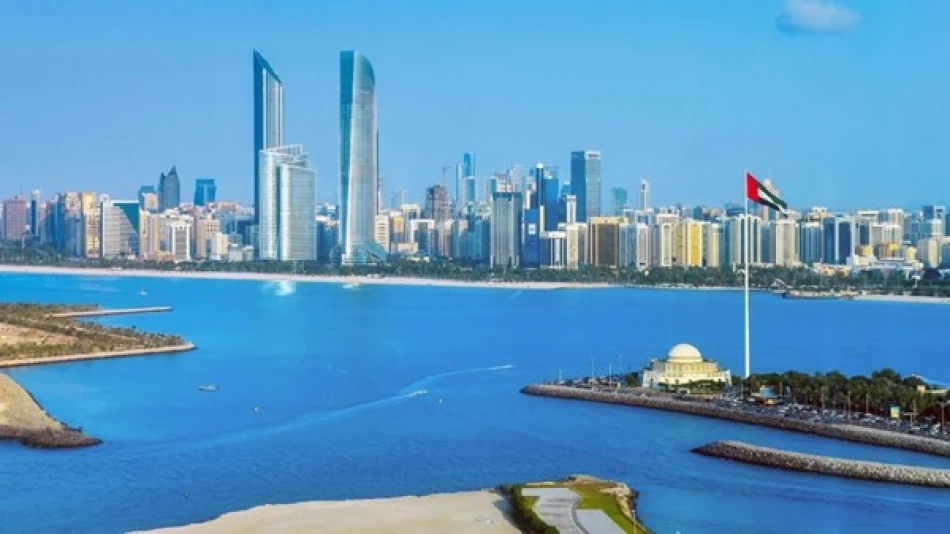
Abu Dhabi Launches Pioneering Sovereign Blockchain Network with Advanced Graphics Processing
Abu Dhabi Launches AI-Powered Blockchain Network Claiming to Be World's Fastest
The ADI Foundation has unveiled the public testnet of the ADI Network, positioning Abu Dhabi as a serious contender in the global blockchain infrastructure race. The network claims to process 2,000 transactions per second at a cost of just $0.00001 per transaction, directly challenging established players like Ethereum and Solana while supporting the UAE's broader digital economy ambitions.
Technical Breakthrough or Bold Marketing?
The ADI Network's core innovation lies in combining artificial intelligence with graphics processing unit (GPU) technology to create what developers claim is the world's fastest blockchain infrastructure. This approach automates fundamental protocols, optimizes performance, and handles data verification in real-time—addressing the persistent "blockchain trilemma" of balancing security, speed, and decentralization.
The network's specifications are impressive on paper: 2,000 transactions per second with room for future scaling, and transaction costs that undercut most existing networks by orders of magnitude. For context, Ethereum processes roughly 15 transactions per second, while Solana—often cited as a high-speed alternative—handles around 3,000 transactions per second but has faced reliability issues.
Real-World Applications Beyond Crypto Trading
The ADI Network's technical capabilities enable applications that traditional blockchain infrastructure cannot support effectively. These include AI-powered instant financial trading, interactive gaming economies managed by artificial intelligence, and privacy-preserving digital identity systems. Such applications represent a significant leap from current blockchain use cases, which remain largely confined to cryptocurrency transactions and basic smart contracts.
Strategic Positioning in the Gulf's Tech Race
Abu Dhabi's blockchain initiative reflects the UAE's broader strategy to establish itself as a global technology hub, competing directly with Singapore, Hong Kong, and emerging crypto-friendly jurisdictions. The timing is particularly strategic, as regulatory clarity around digital assets remains uncertain in major markets like the United States and European Union.
Alison Rose, former CEO of NatWest Group and current ADI Foundation board member, emphasized the network's potential for "economic inclusion and digital sovereignty in emerging markets." This language suggests the UAE is positioning itself as an alternative to Western-dominated financial infrastructure, particularly appealing to developing nations seeking technological independence.
The Dirham-Backed Stablecoin Connection
The ADI Network's first major application will support a UAE dirham-backed stablecoin, developed in partnership with First Abu Dhabi Bank, ADQ, and International Holding Company under central bank supervision. This represents a significant move toward creating a sovereign digital currency infrastructure that could compete with dollar-denominated stablecoins like USDC and Tether.
For regional trade, a dirham-backed stablecoin could facilitate transactions across the Middle East and Africa without relying on US dollar infrastructure—a strategic advantage as global financial systems become increasingly fragmented.
Market Implications and Investor Considerations
The launch comes at a crucial time for blockchain infrastructure projects. Ethereum's transition to proof-of-stake has improved efficiency but hasn't solved scalability issues, while competitors like Polygon, Arbitrum, and Optimism are gaining traction with layer-2 solutions. ADI Network's approach of building from scratch rather than layering on existing infrastructure could provide advantages—or prove unnecessarily complex.
For institutional investors, the UAE's regulatory environment offers stability that many other crypto-friendly jurisdictions lack. The country's substantial sovereign wealth funds and established financial institutions provide a foundation for adoption that purely private blockchain projects often struggle to achieve.
Challenges Ahead
Despite impressive technical specifications, the ADI Network faces significant hurdles. Network effects heavily favor established blockchain platforms—developers, users, and capital tend to concentrate where activity already exists. Ethereum's ecosystem, despite its limitations, benefits from years of development and billions in locked value.
The network's success will ultimately depend on attracting meaningful applications and users beyond the initial dirham stablecoin project. The UAE's government backing provides credibility, but sustainable growth requires organic adoption from developers and businesses across multiple sectors.
The ADI Network represents an ambitious attempt to leapfrog existing blockchain infrastructure through technical innovation and strategic positioning. While the specifications are promising, the true test will be whether Abu Dhabi can build the ecosystem necessary to challenge established players in the increasingly competitive blockchain space.
Most Viewed News

 Layla Al Mansoori
Layla Al Mansoori






